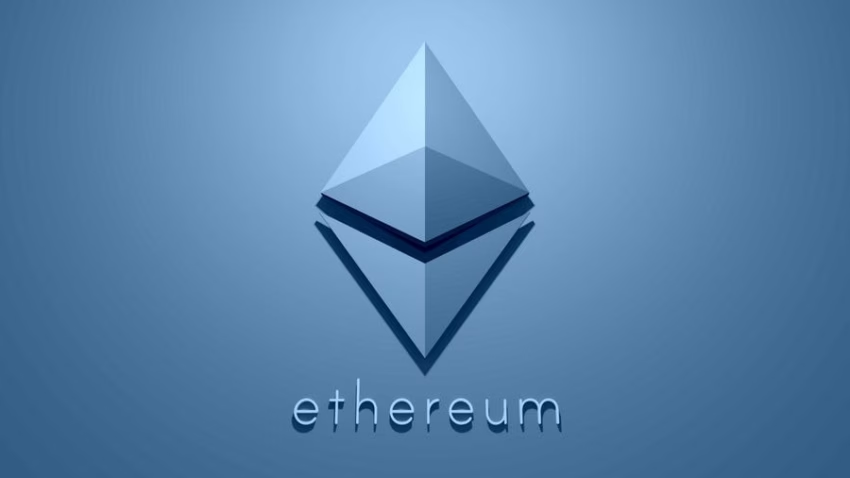
Why Blockchain Developers Use Ethereum?
Are you interested in learning why Blockchain developers use Ethereum?
The number of blockchain development projects is growing rapidly, and the popularity of the Ethereum blockchain development platform is growing, too. Blockchain developers use Ethereum for the following reasons:
1. Ethereum offers the highest decentralized security
A major promise of blockchain is decentralized security. Hackers shouldn’t be able to tamper with records on a blockchain. Decentralization, digital signature, cryptographic hash functions, and consensus algorithms should make it cost-prohibitive for cyber-attackers to hack a blockchain network.

Get a complimentary discovery call and a free ballpark estimate for your project
Trusted by 100x of startups and companies like
Ethereum meets all of these requirements. Users must sign transactions digitally. All computers on the P2P (peer-to-peer) network of Ethereum have equal authority, and all of them store the entire data. One can’t shut down the Ethereum network by shutting down a few computers.
Cryptographic hash functions, decentralization, and the “Proof of Work” (POW) consensus algorithm ensure that cyber-attackers need a massive amount of computing power to hack the Ethereum network. That’s cost-prohibitive and impractical. Developers looking for the highest decentralized security for their blockchain application find Ethereum very suitable.
2. EVM (Ethereum Virtual Machine): Offers the ability to create smart contracts, cryptographic tokens, and DApps (Decentralized Apps)
Ethereum isn’t only a decentralized blockchain network where users can transfer Ether (ETH) to other users. This blockchain network also offers the EVM (Ethereum Virtual Machine). EVM provides a runtime environment for developers to create and run apps.
Blockchain developers can create smart contracts using the Ethereum platform. Smart contracts are open-source pieces of code with “If-Then-Else” statements. They automatically transfer cryptographic assets based on predefined conditions.
Smart contracts are autonomous. They are stored on the Ethereum blockchain; therefore, they are immutable. Their execution results are stored on the Ethereum blockchain. Therefore, the execution of Ethereum smart contracts is irreversible.
Blockchain developers can create cryptographic tokens by coding smart contracts. They can create different kinds of crypto tokens like standard tokens, NFTs (Non-Fungible Tokens), etc.
The Ethereum development platform enables blockchain developers to create DApps (Decentralized Apps). A DApp is a web app; however, its back end consists of Ethereum smart contracts.
1,200 top developers
us since 2016
DApps are open-source, and they run on the decentralized Ethereum network. They store data on the Ethereum blockchain. DApps must have cryptographic tokens.
One can’t change a DApp without a consensus from its user community. No one user of a DApp can own the majority of the cryptographic tokens used in it.
Entrepreneurs have created many decentralized businesses by taking advantage of the above-mentioned capabilities of the Ethereum platform. DeFi (Decentralized Finance) apps like crypto lending platforms are examples.
3. The rich ecosystem of Ethereum development tools and resources
Many blockchain developers prefer Ethereum due to the maturity of the Ethereum development ecosystem. Blockchain is a relatively new technology, therefore, the development system is new. The Ethereum blockchain development ecosystem stands out of the crowd here. It has a wide range of development tools and resources.
The following are a few examples:
- Solidity: It’s a well-known programming language for Ethereum smart contract development.
- Vyper: Vyper is yet another programming language for Ethereum smart contract development, and it’s based on Python.
- The Remix IDE: Remix is a popular IDE to develop Ethereum smart contracts.
- The Truffle Suite of Ethereum development tools: This set of tools helps with many tasks like testing and deployment of Ethereum smart contracts.
- Web3.js: It’s a popular Ethereum JavaScript API.
- MetaMask: It’s a software cryptocurrency wallet that’s useful for Ethereum blockchain development.
- Ropsten: It’s a test network for testing Ethereum smart contracts.
There are also extensive tutorials for Ethereum development.
4. Businesses can develop enterprise blockchain networks using Ethereum
The Ethereum network is a public blockchain, and it’s open to everyone. Enterprises might not be able to use a public blockchain. They have confidential information, and they need to comply with data privacy regulations.
Enterprises can implement a modified version of Ethereum for their private use. They need to use a modified Ethereum client for this.
An example of such an Ethereum client is ConsenSys Quorum. Enterprises can implement a permissioned blockchain network using it. They can then enforce access control. ConsenSys Quorum offers other privacy features, furthermore, it offers better performance and scalability. The support for enterprise use cases is another reason for blockchain developers preferring Ethereum.
5. The popularity of the Ethereum blockchain development platform
Businesses often find it hard to hire competent blockchain developers since the technology is new. Many blockchain developers have acquired Ethereum development skills. Therefore, businesses have a better chance of finding developers if they opt for Ethereum.
This encourages many companies to opt for Ethereum when they choose a blockchain development platform. This demand makes Ethereum even more popular. Therefore, more blockchain developers are choosing to learn about Ethereum development.
FAQs
The Bitcoin network only allows users to transfer this digital currency from one address to another. The Ethereum network goes beyond that, and it offers the EVM (Ethereum Virtual Machine). Developers can code smart contracts and DApps using EVM.
The Ethereum public blockchain network is very secure. All computers on this decentralized network store the entire data. This network uses digital signatures and cryptographic hash functions. It uses the “POW” consensus algorithm, which makes it far too costly for cyber-attackers to hack it.
Developers can create different types of cryptographic tokens using the Ethereum public blockchain network. They need to create Ethereum smart contracts for this, and they need to follow certain standards. ERC-20 is a commonly-used standard for creating cryptographic tokens on this network.


